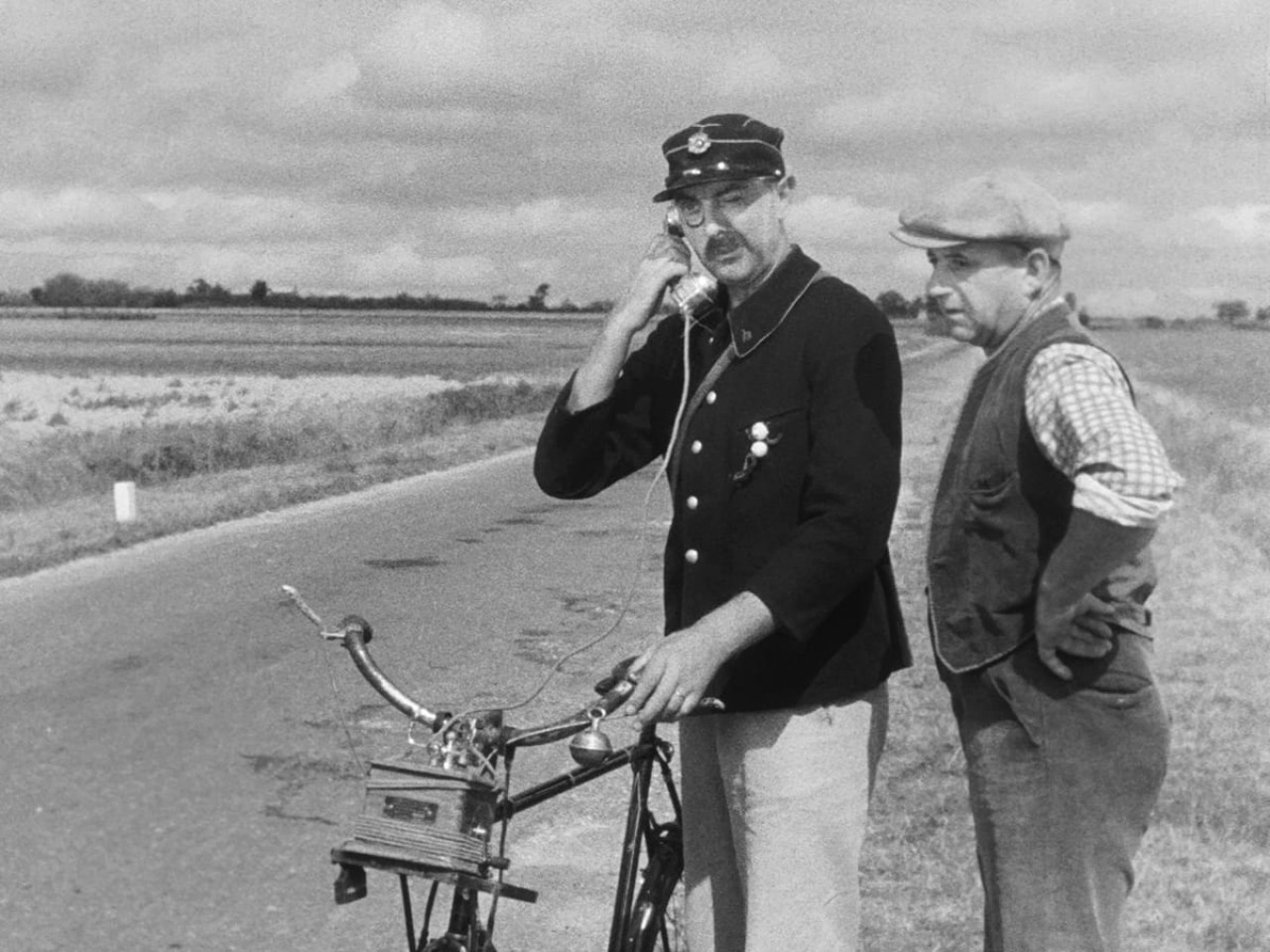Jour de fête

In his enchanting debut feature, Jacques Tati stars as a fussbudget of a postman who is thrown for a loop when a traveling fair comes to his village. Even in this early work, Tati was brilliantly toying with the devices (silent visual gags, minimal yet deftly deployed sound effects) and exploring the theme (the absurdity of our increasing reliance on technology) that would define his cinema.
Special Features
- New 2K digital restoration, with uncompressed monaural soundtrack on the Blu-ray
- Two alternate versions of the film: director Jacques Tati’s 1964 reedit, featuring hand-colored objects and newly incorporated footage, and the full-color 1995 rerelease, completed from Tati’s original color negatives
- À l’américaine, a 2013 visual essay by Tati expert Stéphane Goudet tracking the evolution of Tati’s comedy
- “Jour de fête”: In Search of the Lost Color, a 1988 documentary on the restoration of the film to Tati’s original color vision
- Trailer
- New English subtitle translation
Available In
Special Features
- New 2K digital restoration, with uncompressed monaural soundtrack on the Blu-ray
- Two alternate versions of the film: director Jacques Tati’s 1964 reedit, featuring hand-colored objects and newly incorporated footage, and the full-color 1995 rerelease, completed from Tati’s original color negatives
- À l’américaine, a 2013 visual essay by Tati expert Stéphane Goudet tracking the evolution of Tati’s comedy
- “Jour de fête”: In Search of the Lost Color, a 1988 documentary on the restoration of the film to Tati’s original color vision
- Trailer
- New English subtitle translation

Cast
- Jacques Tati
- François
- Guy Decomble
- Roger
- Paul Frankeur
- Marcel
- Santa Relli
- Carnie wife
- Maine Vallée
- Jeannette
- Roger Rafal
- Hairdresser
- Valy
- Edith
- Jacques Beauvais
- Bondu
- Delcassan
- Old biddy
Credits
- Director
- Jacques Tati
- Written by
- Jacques Tati
- Written by
- Henri Marquet
- With the collaboration of
- René Wheeler
- Director of photography
- Jacques Mercanton
- Color film camera operator
- Jacques Sauvageot
- Camera assistants
- Marcel Franchi
- Camera assistants
- Jean Mousselle
- Camera assistants
- Roger Moride
- Set designer
- René Moulaërt
- Music
- Jean Yatove
- Sound recordist
- Jacques Maumont
- Costumes
- Jacques Cottin
- Script supervisor
- Lydie Noël
- Production manager
- Fred Orain



















